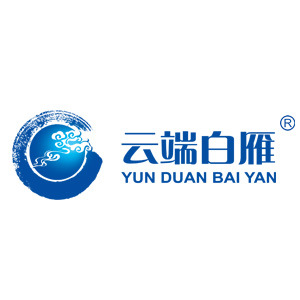擦亮慧眼:知道什么时候用抗生素
CDC Home (疾病防控中心家园)
疾病控制与预防中心—你可信任的健康信息在线资源
Note: Javascript is disabled or is not supported by your browser. For this reason, some items on this page will be unavailable. For more information about this message, please visit this page: About CDC.gov.
Get Smart: Know When Antibiotics Work
擦亮慧眼:知道什么时候用抗生素
It is important to learn about the potential danger of antibiotic resistance – and what you can do to prevent it. Remember, the power to prevent antibiotic resistance is in your hands!
了解抗生素耐药性的潜在危险很重要—你能做什么来防止它的发生同样重要。请记住,防止耐药性发生的权利掌握在你的手中。
Antibiotic resistance is one of the world's most pressing public health problems. This condition occurs when bacteria change in some way that reduces or eliminates the effectiveness of drugs, chemicals, or other agents designed to cure or prevent infections. Widespread overuse of antibiotics is fueling an increase in antibiotic-resistant bacteria. So the next time you really need an antibiotic for a bacterial infection, it may not work.
抗生素的耐药性是世界上最紧迫的大众健康问题之一。当细菌在某些方面发生变化以致降低或消除了用来防治感染的药物、化学品或其它制剂的有效性时,就意味着耐药性发生了。抗生素的广泛过度应用正在使抗药性细菌的数量大增。于是下次你真正需要抗生素来控制细菌感染时,抗生素却可能失效。
If You Have a Cold or Flu, Antibiotics Won't Work for You!
当你得了感冒或流感,抗生素帮不了你!
Colds and flu are caused by viruses, not bacteria. Taking antibiotics when you have a virus may do more harm than good. Get smart about when antibiotics are appropriate. Taking them for viral infections, such as a cold, cough, the flu, or acute bronchitis:
感冒或流感是由病毒而不是细菌引起。当病毒感染时用抗生素,害处多过益处。因此必须清楚什么时候应用抗生素才合适。在病毒感染时,比如感冒,咳嗽,流感或急性支气管炎用抗生素将会有以下后果:
Will not cure the infection;
不能治愈感染;
Will not keep other people from getting sick;
不能预防其他人生病;
Will not help you feel better;
不能令你舒服一些;
and May cause unnecessary and harmful side effects.
可能发生不必要且有害的副作用。
o not demand antibiotics when a healthcare provider says they are not needed. They will not help treat your infection.
医生说不需抗生素时,别主动要求用抗生素。抗生素此时无助于治愈你的感染。
Do not take an antibiotic for a viral infection like a cold, a cough, or the flu.
感冒,咳嗽或流感等病毒感染时别用抗生素。
Do not take antibiotics prescribed for someone else. The antibiotic may not be appropriate for your illness. Taking the wrong medicine may delay correct treatment and allow bacteria to multiply.
不要服用开给别人的抗生素。这种抗生素可能不适合你的病情。用错了药可能延误正确的治疗同时导致细菌大量繁殖。
If your healthcare provider prescribes an antibiotic for you:
如果你的医生给你开了抗生素:
Do not skip doses.
不要忽视剂量 。
Do not save any of the antibiotics for the next time you get sick.
不要保留任何抗生素以备下次生病时用
Talk with your healthcare provider about the best treatment for your illness. To feel better when you have an upper respiratory infection and antibiotics are not needed:
与你的医生讨论你的疾病的最佳治疗方法,当你只是上呼吸道感染而无须用抗生素时,请你欣然接受。
Increase fluid intake;
增加液体摄入量;
Get plenty of rest;
保证足够的休息;
Use a cool-mist vaporizer or saline nasal spray to relieve congestion;
用凉爽的喷雾剂或盐水喷鼻剂(“清诺”盐水鼻腔喷雾器)缓解鼻塞、充血;
and Soothe your throat with ice chips, sore throat spray, or lozenges (do not give lozenges to young children).
含点冰片或使用喉痛喷剂舒缓咽喉疼痛,也可服用止咳糖(不要给儿童用止咳糖)
Also, make sure you properly dispose of leftover and expired antibiotics. Clean your hands often, especially before meals and after touching pets. And make sure both you and your child are up-to-date on your recommended immunizations
另外,确保你已妥善处理剩余的和过期的抗生素。勤洗手,特别是吃饭前和接触宠物后。同时确保你和你的孩子及时按推荐方案进行了预防接种。



